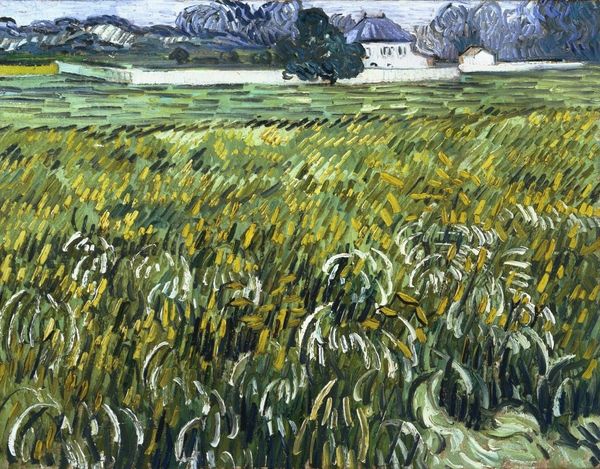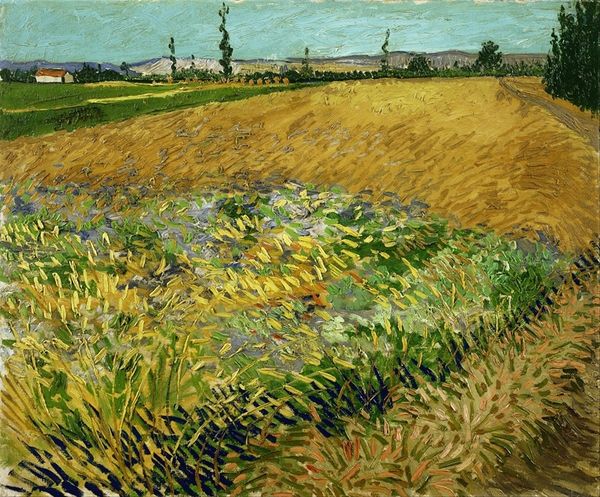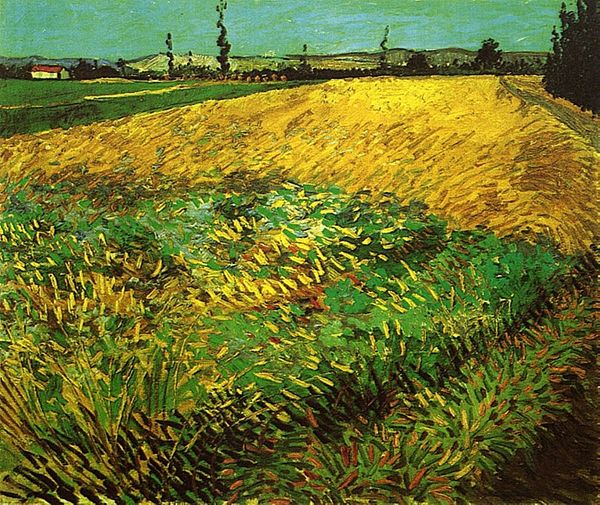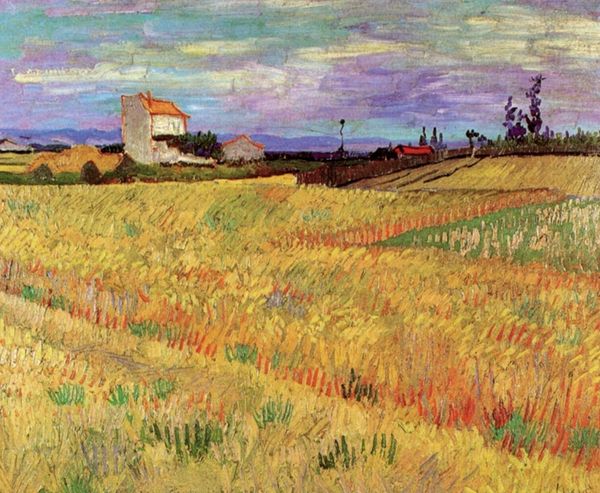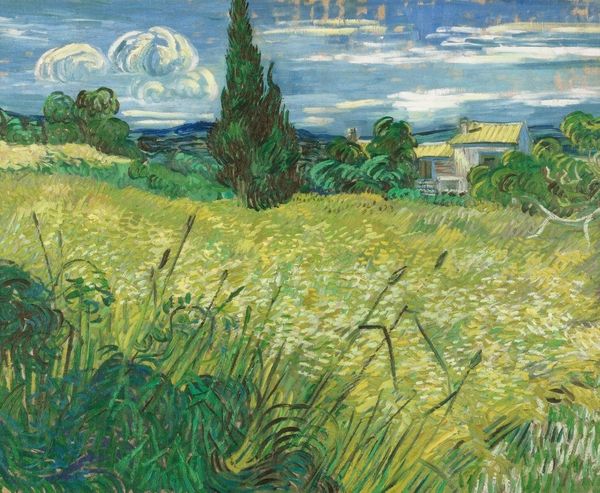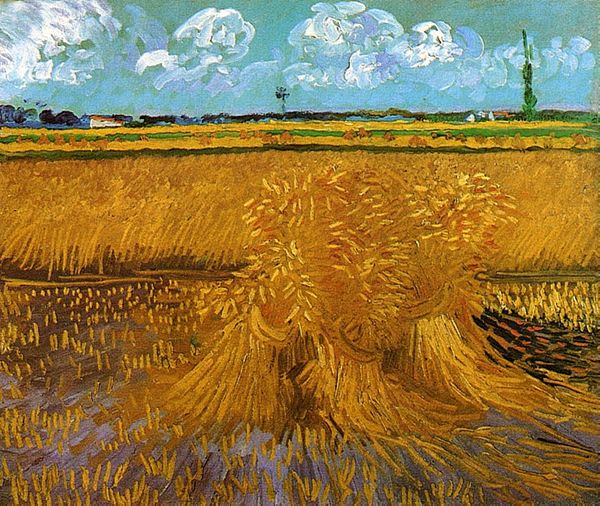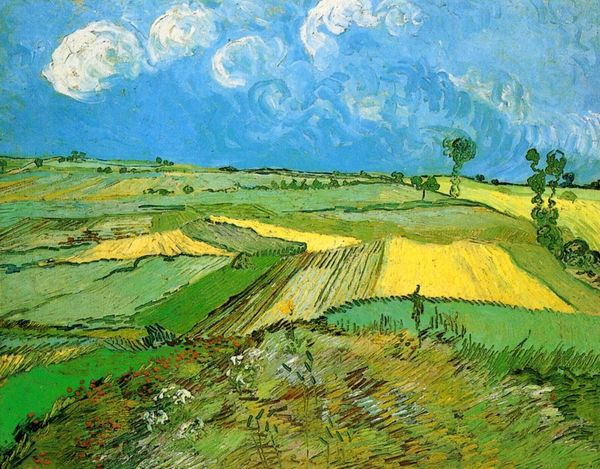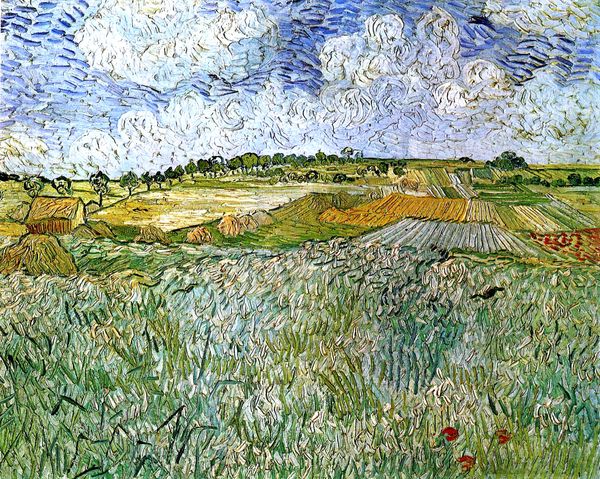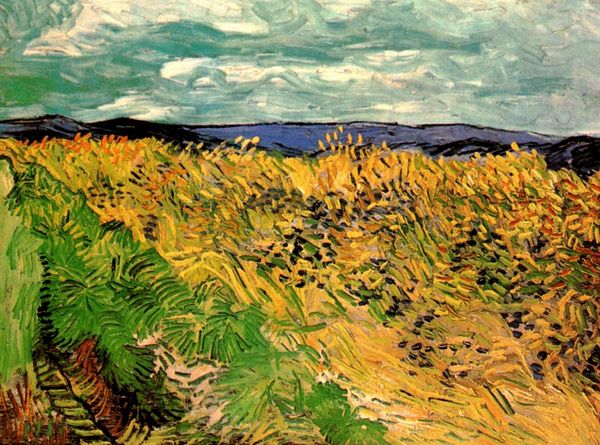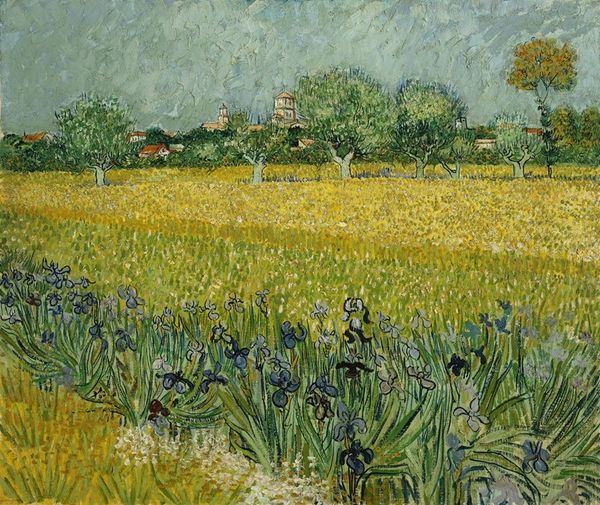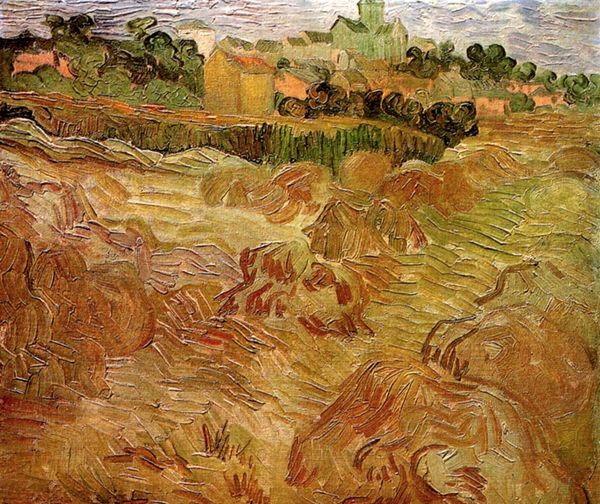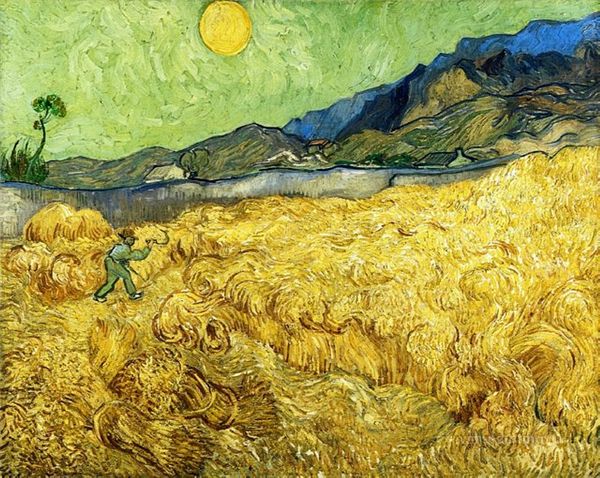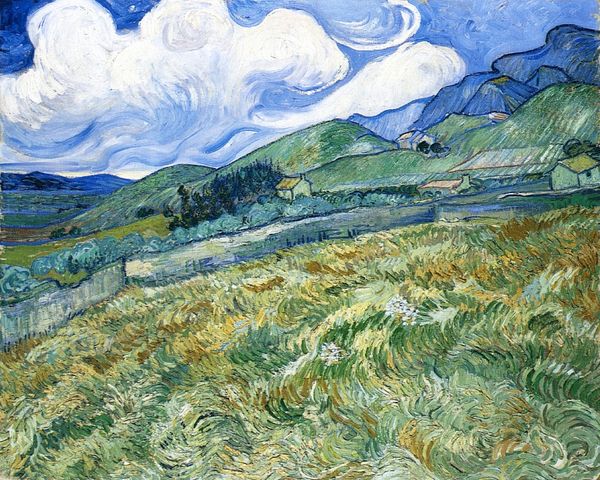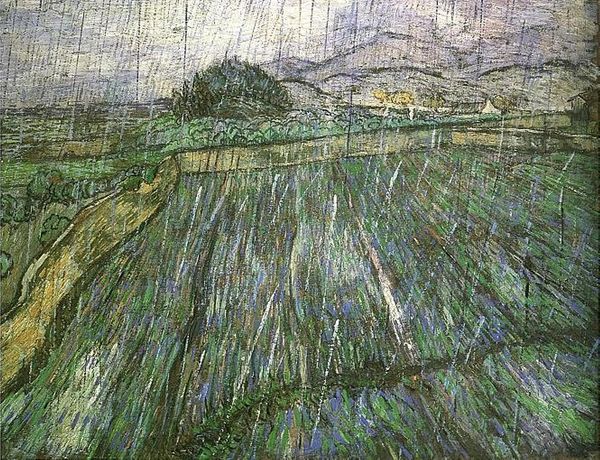
painting, plein-air, oil-paint, impasto
painting
impressionism
plein-air
oil-paint
landscape
impressionist landscape
nature
form
impasto
line
cityscape
post-impressionism
realism
Dimensions: 63.2 x 48.6 cm
Copyright: Public domain
Vincent van Gogh created this oil painting, Wheat Field at Auvers with White House, in France, close to the time of his death in 1890. This painting is a striking example of the Post-Impressionist style, but it also reflects the social and economic realities of rural France at the end of the 19th century. Wheat fields were not just a picturesque landscape, but the source of livelihood for many peasant farmers. Van Gogh was keenly aware of the lives of ordinary people, so he was particularly interested in capturing their daily existence in his art. The "white house" in the background is a symbol of stability and prosperity, but also a reminder of the social divisions that existed in rural society. Van Gogh's expressive brushwork and bold use of color serve to challenge traditional academic painting. To fully appreciate Van Gogh's work, we can consult a wide range of sources, including letters, biographies, and social histories of the period. These resources can help us understand the complex social and cultural forces that shaped Van Gogh's artistic vision.
Comments
No comments
Be the first to comment and join the conversation on the ultimate creative platform.
